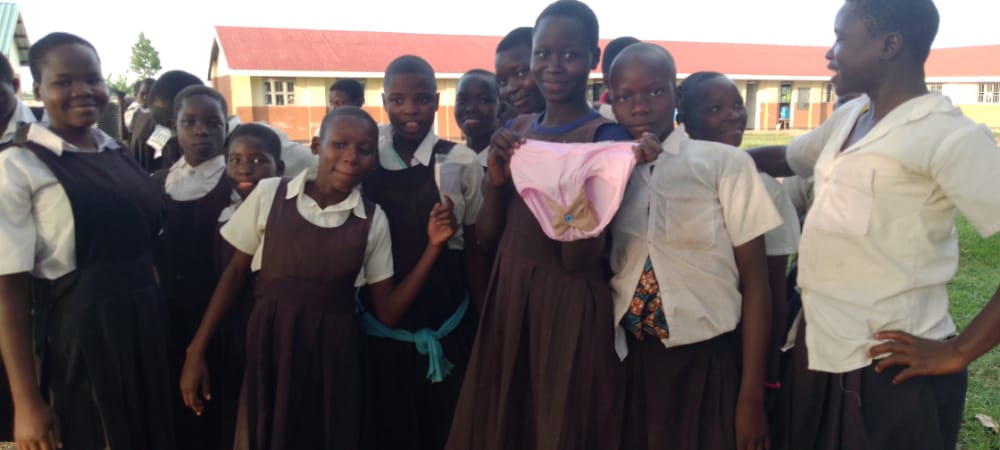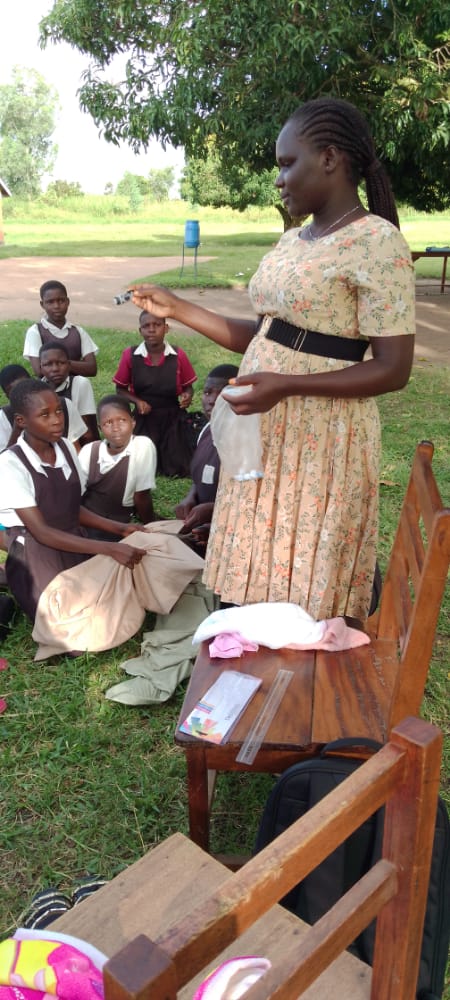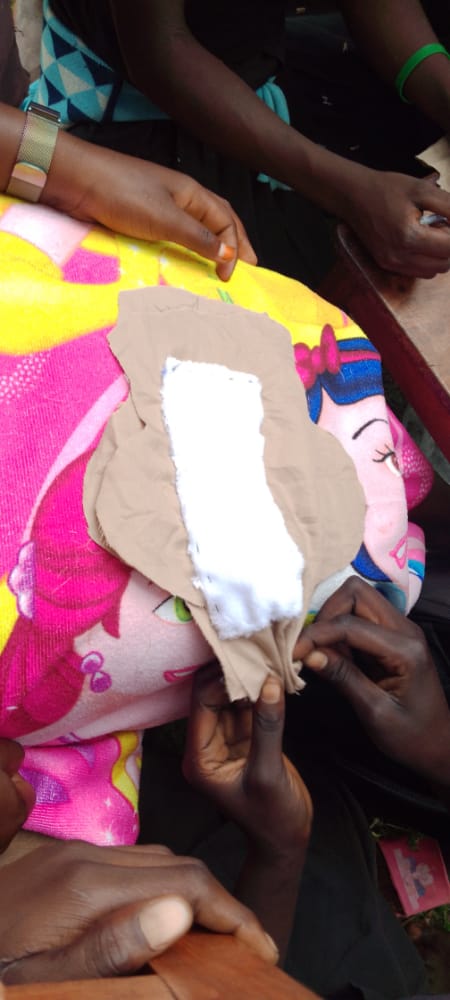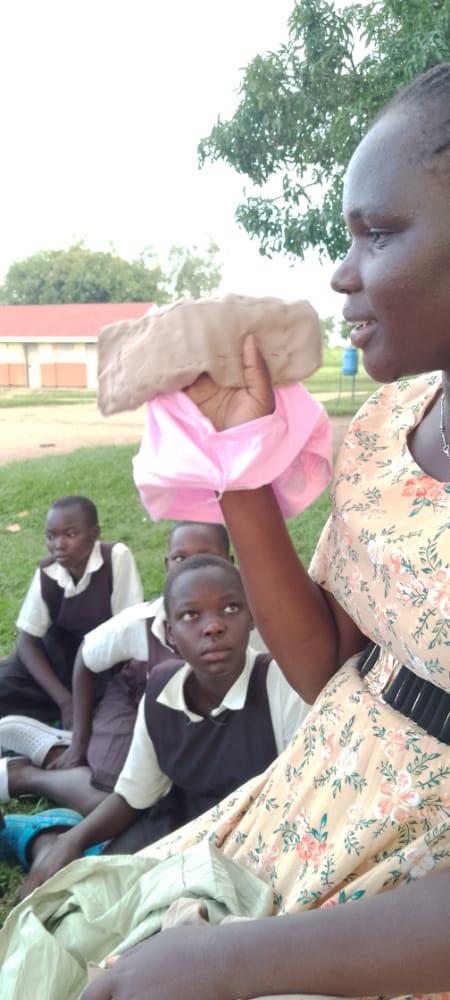
In an effort to tackle the menstrual hygiene challenges faced by female students, our Burcoro team conducted an evening training session at Burcoro Primary School. The initiative was prompted by a request from the students themselves, who expressed a desire to learn how to make reusable pads. Previous attempts to introduce menstrual cups had proven uncomfortable for many of the girls, leading them to discontinue their use. Furthermore, the financial burden of purchasing disposable pads forced them to engage in manual labor, such as working in people’s gardens, just to afford the costly products. Typically, they earned a meager sum of 3,000, further exacerbating the financial strain.
With limited financial resources available, these circumstances left the girls with few options. Some resorted to seeking monetary assistance from men, ultimately placing them at risk of early marriage and dropping out of school. Recognizing the urgency of the situation, our team not only trained the students in the art of making reusable pads but also educated them on personal hygiene practices to maintain cleanliness during menstruation.



Regrettably, due to the scarcity of materials, we were unable to provide sufficient supplies for the training. Consequently, we appealed to the school administration to organize a dedicated session, specifically led by the senior female teacher, who could offer more comprehensive instruction and ensure the provision of necessary materials to the students.
This collaborative effort aims to empower young girls by equipping them with the knowledge and skills to create their own reusable pads, relieving them of the financial burden and dependency on external resources. By addressing this critical need, the initiative seeks to alleviate the adverse consequences of limited access to menstrual hygiene products, including early marriages and school dropouts.
It is our hope that the school administration will prioritize the implementation of this proposed session, ensuring that the senior female teacher can impart her expertise to the students effectively. Moreover, the provision of necessary materials will enable the girls to immediately put their newfound skills into practice, fostering a sense of self-reliance and dignity.
By addressing the challenges faced by female students in managing menstruation, this initiative takes a significant step toward promoting gender equality and creating an inclusive educational environment. The training not only equips the girls with practical skills but also serves as a platform to educate them on the importance of personal hygiene during menstruation. Ultimately, empowering these young girls will enable them to pursue their education unhindered and contribute to their long-term success.
